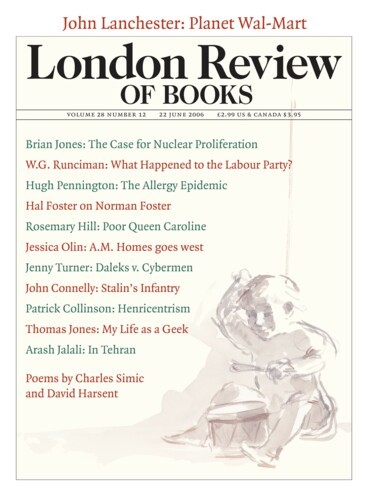Paul Seabright
Paul Seabright is a professor of economics at the University of Toulouse-1.
How to Say It
2 January 2003
Who is the villain? the new economy
Paul Seabright, 22 August 2002
Of the many fantasies provoked by the spread of the Internet, few are creepier than the vision of a world in which every relationship can be dissolved at the click of a mouse. Yet the click might also seem liberating, empowering even, to the person doing the clicking. Robert Reich’s book is about the consequences, for our work and our lives, of the so-called new economy and – more...
Vive la République
9 May 2002
Explosion in Toulouse
1 November 2001
Read anywhere with the London Review of Books app, available now from the App Store for Apple devices, Google Play for Android devices and Amazon for your Kindle Fire.
Sign up to our newsletter
For highlights from the latest issue, our archive and the blog, as well as news, events and exclusive promotions.





